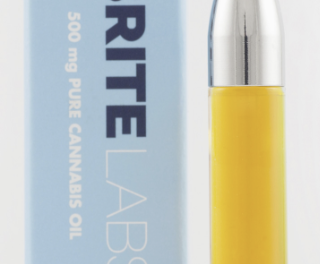March 10, 2020 An article in the National Law Review describes the new labels that must be displayed on Cannabis and CBD products warning against use by pregnant women. The authors, Hillary N. Vedvig, Nicholas R. Johnson, and Erik K. Swanholt are with the Foley & Lardner law firm which has “over 1,100 lawyers in 24 offices across the United States, Mexico, Europe, and Asia.” Compliance with cannabis regulations must be one of their many areas of claimed expertise.
California’s Proposition 65 – which already poses daunting compliance challenges for a wide range of industries – is now set to apply more broadly to cannabis and cannabidiol (“CBD”) products. Beginning January 3, 2021, companies who manufacture, distribute, or sell at retail delta-9-tetrahydrocannabinol (“THC”) products in California – including CBD products made with industrial hemp – will be required to warn consumers that exposure to THC is known to the state of California to cause reproductive harm.
California’s Safe Drinking Water and Toxic Enforcement Act of 1986, known commonly as “Prop 65,” is a state law that requires labeling of products that contain chemicals that the state has designated as being known to cause cancer, birth defects or other reproductive harm. Cannabis (marijuana) smoke has been listed as a carcinogen (only) since 2009, but THC has not been previously listed. That changed on January 3, 2020, when the state listed both cannabis smoke and THC as reproductive toxins under Proposition 65. Therefore, cannabis smoke is now listed for both cancer and reproductive harm, and THC has been added to the Prop 65 list for the first time.
The listing does not include a safe harbor limit, meaning that products with any detectable level of THC – including products that contain less than 0.3% THC in conformance with federal law – will require Prop 65 warning labels. As a result, products made or infused with CBD (and which contain any detectable level of THC) must be labeled in accordance with Prop 65.
Prop 65’s warning requirements apply to any business in the chain of distribution, including manufacturers, distributors and retailers — including out-of-state companies selling products in California. Companies that sell cannabis or CBD products in California can take advantage of the safe harbor warning provisions of Prop 65 and avoid potential litigation by providing warnings that satisfy the complex and specific requirements of the regulation. It will be important for these companies to consult with experienced regulatory counsel prior to creating packaging or labeling to ensure that they comply with Prop 65 and other labeling requirements promulgated by the California Department of Public Health (“CDPH”).
THC products sold without warnings (or with warnings that do not satisfy the regulation) can expose sellers to Prop 65 enforcement actions brought by government agencies or individuals. Prop 65 allows the state to pursue enforcement actions or violations, and fines can be substantial – up to $2,500 per day per violation. In practice, however, Prop 65 is “enforced” primarily by an aggressive plaintiffs’ bar (seeking quick settlements) that often targets groups of products by filing citizen suits immediately after the waiting period on a newly listed chemical expires. It would not be surprising if the cannabis industry quickly becomes a target of these “sue and settle” efforts, given that the recently eased regulatory atmosphere around these products had led to a concomitant rise in their marketing and sale.
© 2020 Foley & Lardner LLP
Retro Message
Thanks to Ellen Komp of California NORML for passing this on. The attorneys who wrote it evidently don’t know that the cannabis industry has long been a target of “sue and settle” lawyers. In a succinct 2018 exposé on this site, Benson Hausman, MD, dubbed them “Prop 65 trolls.” Now Foley & Lardner is trolling for cannabis clients seeking to fend off the Prop 65 trolls. It’s Troll vs. Troll!
The lawyers’ potential for profit is made possible by the harm(s) attributed to cannabis by the medical establishment. Their catchment area has been reduced by the medical marijuana movement, but the neoprobes retain control over pregnant women and everybody under the age of 21 and they have been digging in to defend their turf.
A worrisome study just published in the Journal of Perinatology elicited this thoughtful commentary from Dale Sky Jones, executive director of Oaksterdam University and mother of three healthy and intelligent children. LINK TK





